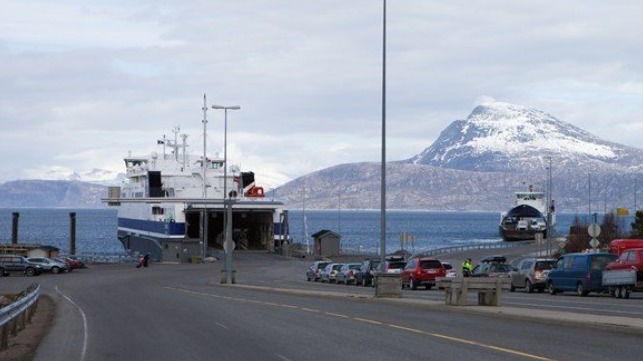One of Norway's Northernmost Ferry Routes is Set to Go All-Electric

One of the most challenging ferry routes in northern Norway is set to go all-electric, according to the Norwegian Public Roads Administration.
The agency has signed a $180 million contract with operator Torghatten Nord to switch to battery-powered vessels on the Bognes - Lødingen route, located above the Arctic Circle. The ten-year charter begins in January 2024.
"It is not long ago that many would say that it was not possible to operate an electric ferry on such a long and demanding stretch, but now we are doing it," said division director Bjørn Laksforsmo of the NPRA. "The green shift in ferry operations is a result of the Norwegian Public Roads Administration using its purchasing power, at the same time as the shipping companies are taking on the challenges."
The ferry connection between Bognes and Lødingen crosses the waters of the Vestfjord, which is often swept by storms from the Norwegian Sea in the wintertime. It is a relatively long, exposed route for a battery-electric ferry, and a rare Arctic deployment for the technology.
The contract is also a significant service upgrade. Both the capacity and frequency of the ferry service will be increased. The summer season will be extended by four weeks so that there will be three vessels in service from June through the end of August, and the extra summer vessel will be larger than the one in use today. A combination of newbuild and retrofitted electric ferries will be deployed to serve the route.

that matters most
Get the latest maritime news delivered to your inbox daily.
"I am very pleased that we have landed the contract and can continue the operation of the busiest ferry connection in northern Norway," said CEO Torkild Torkildsen of Torghatten Nord.
It is a preview of things to come. Soon, all of the national road ferries in northern Norway will be low- or zero-emissions, according to the NPRA. Earlier this year, the Norwegian Public Roads Administration signed a contract with Fjord1 for zero-emission ferries on the Bognes - Skarberget and Drag - Kjøpsvik routes. Later on, the longer Bodø - Røst - Værøy - Moskenes route will be decarbonized using hydrogen propulsion, the agency said.
